OC Stories: Recovery After Vocal Injury
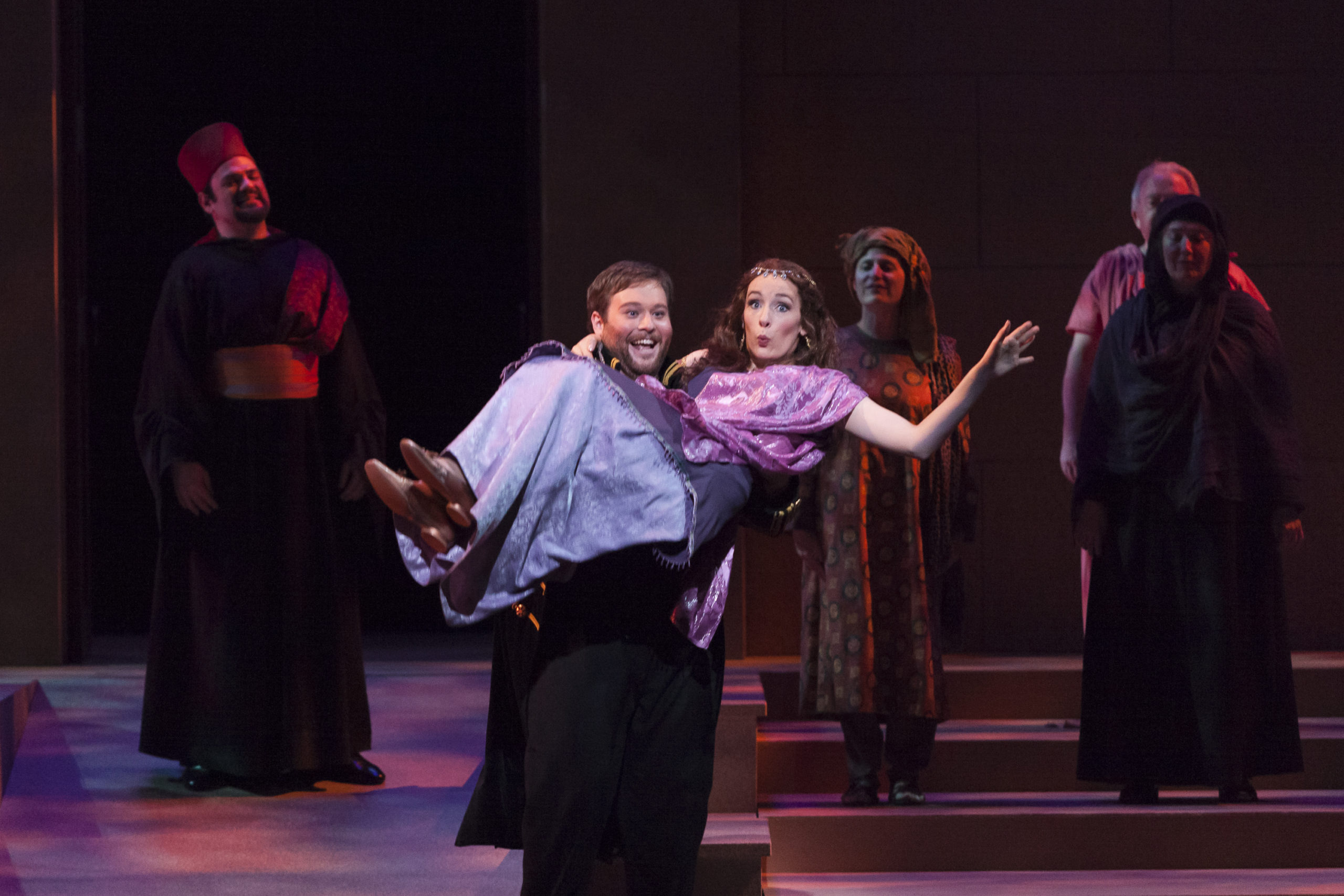
During this time of isolation and disruption, we here at Opera Colorado are doing our best to reach out and connect with the faces we used to see every day. Over the next few months, we’re going to be sharing first-hand stories from our staff and our community of industry professionals. In this first personal post, Leah Bobbey, Opera Colorado’s Individual Giving and Special Events Manager (and former Young Artist!) details her fight with and recovery from vocal injury. Keep an eye out for more stories from our Opera Colorado family!
Recovery After Vocal Injury
By Leah Bobbey
When there’s something wrong, you just know. For me, that was definitely the case as I sang an audition in November 2015 for a top-tier opera house. I was in my fourth city and on my fifth audition that week, and was already dealing with some sinus pain and congestion. However, I didn’t want to cancel those really important auditions (not to mention, expensive flights!) that I had lined up throughout the week. I powered through as best I could.
As I took the audition floor, I knew my warmup that morning hadn’t felt great. I decided to start with Susanna’s aria from Le Nozze di Figaro — “Deh vieni, non tardar” — which has always been one of my favorite pieces to sing. Long, legato phrases that exemplify beauty and gorgeous prose, equally balanced between mischief and authenticity; I’m biased, but this aria must certainly be one of Mozart’s masterpieces. During that time, though, my voice became increasingly hoarse and tired. No sharp pains or aches, but a rapid deterioration of the outward sound, as well as a loss of breath control and overall technique. I got through the piece and was not at all surprised when I received a “thank you, that’s all we need to hear.”
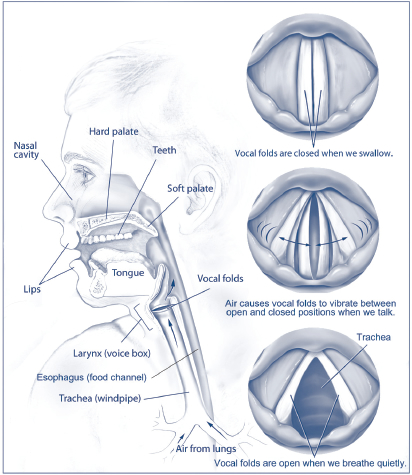
Less than a week later, I was diagnosed with a polyp on my left vocal cord.
The vocal cords are two thin folds of muscle that live in the larynx, also known as the voice box. They vibrate as air moves through the throat, creating vocal sounds. This is a similar concept to how a grasshopper makes mating noises by rubbing its legs together, or how the drawing of a bow across the strings of a violin produces a melody. The trick is that the vocal cords must come fully together. Often when a voice sounds thin or “raspy,” it is because the cords are not adducted and there is air escaping through the open area. Over time, this incomplete closure can lead to a vocal injury.
It’s very common to hear in the news that a pop singer has cancelled a leg of their worldwide tour or is delaying an album release due to vocal stress and trauma. You might remember Adele’s infamous vocal surgery towards the end of 2011, and then her triumphant return three months later in February of 2012. I believe this is my only connection to the incredible performer: we both had polyps on our cords that were removed via laryngeal microsurgery.
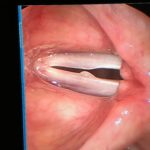
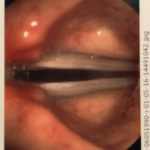
So, what are vocal polyps and how does a person get one? Harvard Medical School describes them as “…small, soft growths that usually appear alone on a vocal cord… caused most often by vocal abuse or long-term exposure to irritants, such as chemical fumes or cigarette smoke.” This is different from vocal nodules, or nodes, as nodules occur on both vocal cords and are “small, hard, [and] callous-like.” Nodes are very common for those professionals who use their voice constantly, such as teachers or public speakers.
My doctor told me that I most likely developed a polyp due to several factors: I have anxiety and naturally carry tension in my throat, I have cords with blood vessels very close to the edge of the muscle and are aggravated with high levels of mold, and I was singing slightly under the weather. These factors came together to create the perfect storm, resulting in an injury. Unlike Adele, my cord did not hemorrhage, and therefore may have healed just fine with several months (up to six) of complete vocal rest followed by extensive voice therapy. I chose to have surgery in early December of 2015 to speed up the process, and was able to successfully perform a leading operatic role in March of 2016.
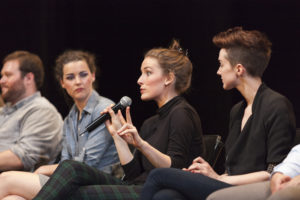
While I didn’t get the gig from my poor rendition of “Deh vieni, non tardar,” my story does have a happy ending. If you’re dealing with vocal injury, you can have one, too! You know your body better than anyone else. When there’s something wrong, trust your instincts. See more than one medical professional, if you have the resources, and make the most educated decision you can with the information you’ve been given. Know that so many singers and professionals deal with these issues, even if they’re not public with their personal experiences. You’re not a failure because you have vocal trauma. And finally, believe in your potential to succeed; remember that your body has the ability to grow and heal in ways you never thought possible.
Here are a few links that I recommend checking out if you’re interested in learning more about vocal health:
Harvard Health Publishing (Harvard Medical School)
NorthShore University HealthSystem (This is where I received my treatment, surgery and therapy!)
If you have questions you’d like to ask me directly, please email me at lbobbey@operacolorado.org.



Leah, I’m so glad that you’re better. And I’ so glad you’re back at Opera Colorado. You always have a smiling welcome!
Leah–
I just read your fascinating story about vocal surgery. I was doing a little running in Washington Park about 2 weeks ago, felt a sharp pain in the left knee and hobbled home. I am recovering now from a knee sprain, and my great fear was knee surgery (ACL?). I second your advice about getting good professional advice, medication, etc. I’m a third of the way into a 4-6 week full recovery and am glad I had the assistance I needed (Kaiser). Luckily no surgery, but close enough.
Don
I am so glad you recovered, and that you shared this story. It is most welcome and illuminating. Thank you for sharing it.